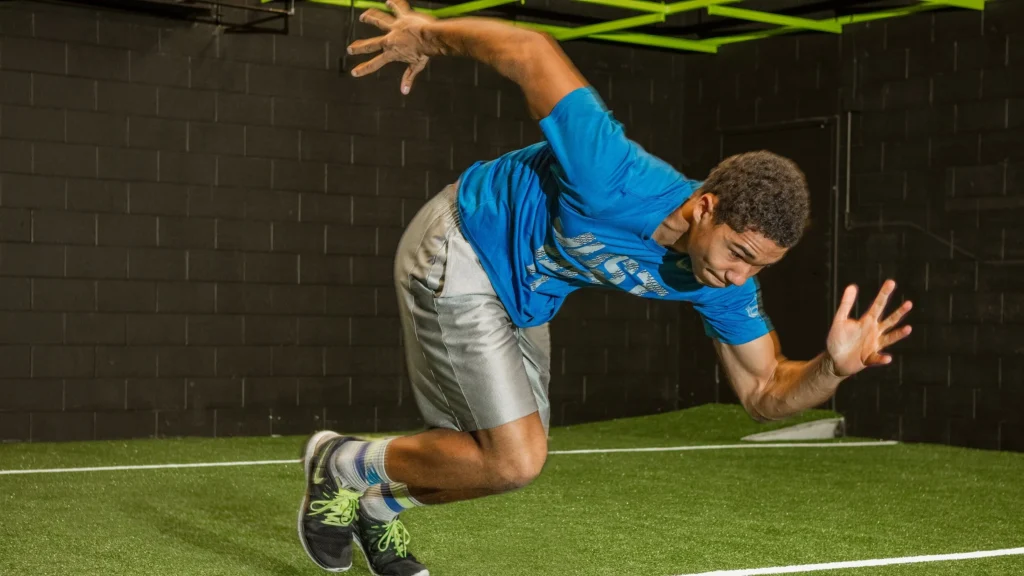Training Hard Work Athlete: The Blueprint for Success in Sports and Fitness

Achieving greatness in sports requires relentless training, unwavering hard work, and an athlete’s discipline to push through every challenge. Whether you’re an aspiring professional or a fitness enthusiast, understanding the importance of structured training and hard work is essential to excelling in athletics. In this article, we’ll explore Training Hard Work Athlete proven strategies, key elements of athletic success, and practical tips for building resilience and achieving peak performance.
The Foundation of Training: Building an Athlete’s Journey
Physical Fitness Training: The Cornerstone of Athletic Excellence
Every athlete’s journey begins with physical fitness training, designed to enhance strength, flexibility, and cardiovascular endurance. Effective programs combine strength training routines, endurance improvement exercises, and tailored sports-specific training for optimal performance. Dedication to these principles builds an athlete’s core stability and prevents injuries.
Key tips for maximizing your fitness regimen:
- Incorporate cross-training benefits to target multiple muscle groups.
- Develop a sustainable routine with structured goals.
- Use progressive overload to continuously challenge your body.
Strength Training Routines: Building Power and Endurance
Strength training routines are vital for athletes aiming to improve their explosive power and overall athletic performance. Exercises like squats, deadlifts, and bench presses help build muscle strength and improve endurance. Pairing these with functional movements enhances performance during competitions and prevents burnout.

Hard Work: The Heart of an Athlete’s Drive
Dedication in Sports: A Non-Negotiable Attribute
To excel in any sport, dedication in sports is the foundation for long-term growth. Athletes who commit to rigorous training discipline techniques often surpass their peers. Daily practice, perseverance, and a structured routine help build consistency, a critical component in achieving athletic success.
Hard work ethics often separate top performers from those who falter. Striving for excellence requires a mindset where obstacles become opportunities.
Mental Toughness in Athletes: Winning the Inner Game
Mental toughness in athletes is as critical as physical strength. Overcoming setbacks, such as injuries or defeats, requires a resilient mindset. Tools like sports psychology techniques and goal setting help athletes stay focused, driven, and positive.
Practical steps to build mental toughness:
- Visualize success during intense competitions.
- Use mindfulness techniques to reduce stress and anxiety.
- Embrace challenges as opportunities for growth.
Training Techniques That Maximize Results
Endurance Improvement Exercises: Pushing the Limits
For athletes, improving stamina and endurance can mean the difference between victory and defeat. Integrating high-intensity interval training (HIIT) into your workouts boosts both aerobic and anaerobic capacity. HIIT focuses on short bursts of intense exercise followed by brief rest periods, pushing your limits effectively.
Cross-Training Benefits: Versatility in Workouts
The cross-training benefits extend far beyond just injury prevention. Combining cycling, swimming, and resistance exercises into a weekly plan diversifies physical development. This approach improves overall performance and reduces mental fatigue by adding variety to your routine.

Athletic Performance Enhancement: Beyond Physical Training
Sports Nutrition for Athletes: Fueling Peak Performance
No matter how rigorous the training, proper nutrition plays an equally vital role in optimizing an athlete’s performance. Consuming the right balance of proteins, carbohydrates, and healthy fats provides energy and aids recovery.
Tips for effective sports nutrition:
- Include lean protein sources to repair muscle damage.
- Use complex carbs to sustain energy during long sessions.
- Stay hydrated to maintain electrolyte balance.
Importance of Rest for Athletes: Recover to Perform Better
Rest is often overlooked in the pursuit of progress. However, scheduled rest days and sleep are critical to allow the body to repair itself. Proper recovery helps athletes avoid burnout, ensuring they remain consistent in their efforts.
The Role of Coaches and Support Systems
Training Camps for Athletes: Intensive Skill Development
Participating in training camps for athletes offers an immersive environment where individuals can refine their skills, receive expert feedback, and compete with peers. These camps often focus on improving technical skills, strategy, and teamwork under professional guidance.
Role of Coaches in Athlete Success: The Guiding Force
Behind every successful athlete stands a dedicated coach who provides mentorship and expertise. Coaches develop tailored plans, track progress, and offer motivation during tough times. Their ability to adapt to an athlete’s needs ensures sustained growth.
Overcoming Challenges with Perseverance and Consistency
Perseverance in Training: Never Giving Up
Athletes often face hurdles such as injuries, plateaus, and self-doubt. Perseverance in training involves pushing through these challenges and focusing on long-term objectives. By developing coping mechanisms and maintaining motivation, athletes can overcome adversity.
Consistency in Fitness Routines: Small Steps, Big Results
The key to building long-lasting success lies in being consistent. Establishing daily habits and following a structured plan ensures progress. Consistency allows athletes to develop muscle memory and peak physical condition gradually.

Mindset of a Successful Athlete: Passion Meets Strategy
Goal Setting for Athletes: Turning Dreams into Action
Effective goal setting for athletes provides direction and purpose. Whether short-term or long-term, goals must be specific, measurable, achievable, relevant, and time-bound (SMART). Tracking progress boosts confidence and keeps motivation high.
Conclusion: Unlocking Potential through Training and Hard Work
Success as an athlete requires balancing rigorous training, unwavering hard work, and a growth-oriented mindset. From physical fitness to mental toughness, every aspect contributes to overall performance. Whether you’re improving endurance, exploring sports-specific training, or mastering strength training routines, consistency is your secret weapon. Pair your efforts with the right guidance, rest, and sports nutrition for athletes, and you’re on the path to greatness.
FAQs
1. How can athletes stay motivated during challenging training sessions?
Staying motivated involves setting clear goals, visualizing success, and rewarding small milestones to maintain enthusiasm.
2. What is the importance of sports nutrition for athletes?
Proper nutrition fuels energy, aids recovery, and enhances physical performance, ensuring athletes reach their potential.
3. How often should athletes incorporate rest days?
Rest days should be scheduled weekly to allow muscles to recover and prevent overtraining injuries.
4. What are the benefits of cross-training for athletes?
Cross-training improves overall fitness, reduces injury risk, and adds variety to prevent workout monotony.
5. How can athletes develop mental toughness?
Mental toughness can be developed through visualization, mindfulness techniques, and embracing challenges as opportunities for growth.






